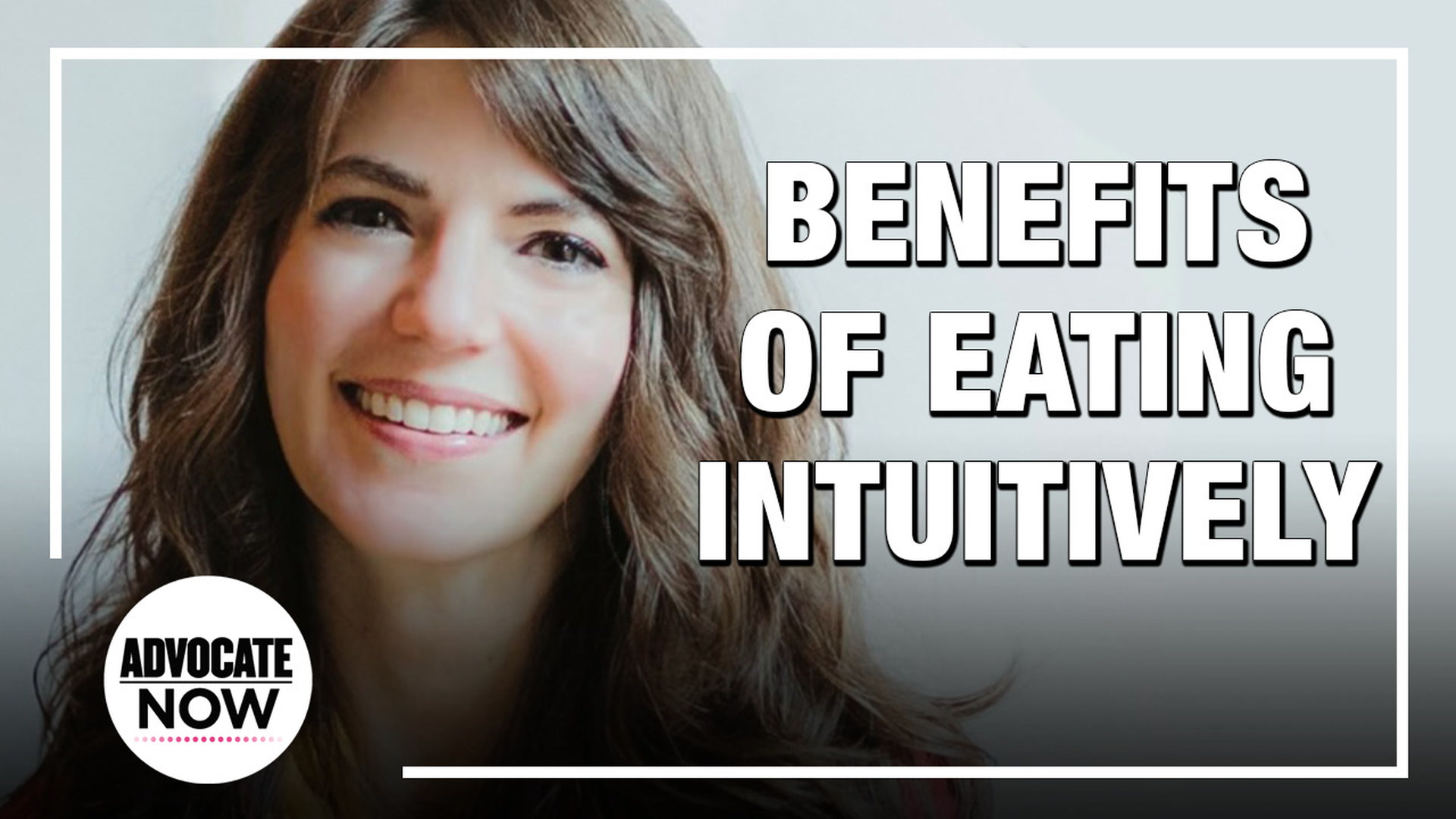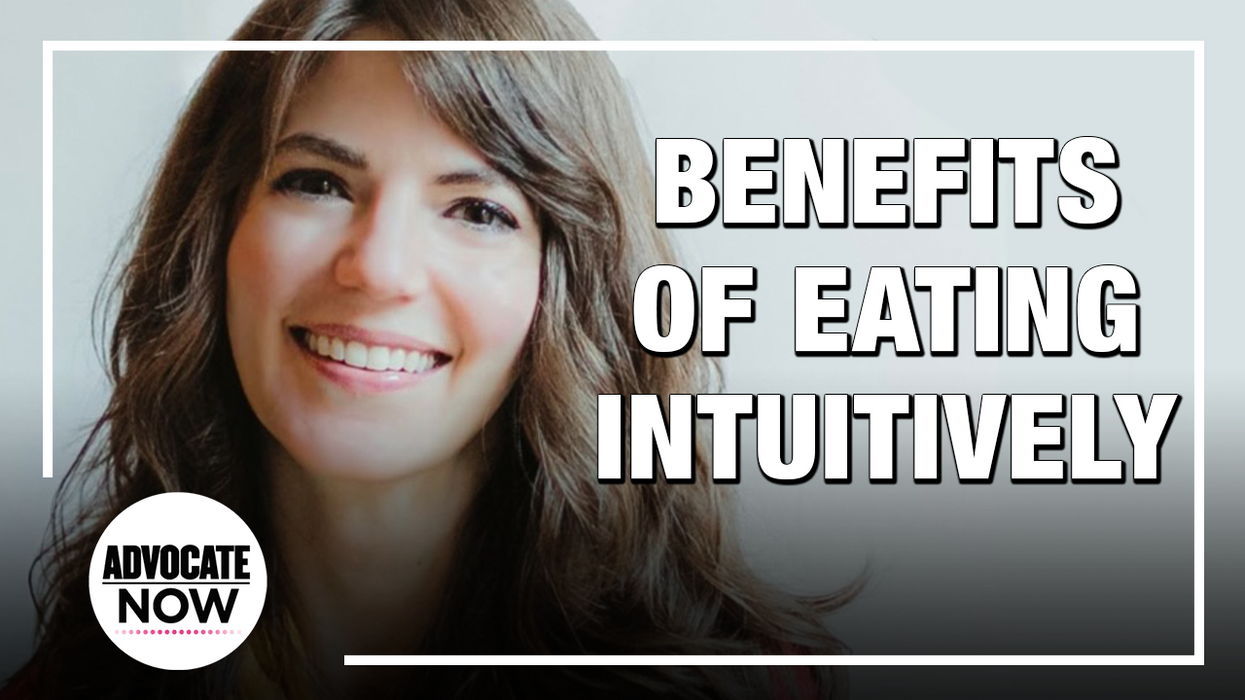Christy Harrison says that "humans have always eaten for pleasure, for celebration, and for community," and there's no reason to deprive ourselves of that today.
How to Improve Your Health Through Intuitive Eating

Harrison is a dietician who advocates for intuitive eating, which she defines as "learning to eat when we're hungry," and "learning to recognize feelings of fullness." It is not an extension of diet culture, or the harmful patterns of restriction that come with it.
"It's really this anti diet approach that says we put our bodies, needs, desires, and pleasures back into the driver's seat and stop following diet culture rules and restrictions, stop thinking of food as good and bad," she tells Sonia Baghdady of Advocate Now. 'Nothing is off limits. With intuitive eating. We can learn to make peace with all foods and trust ourselves in our bodies to get the nourishment and the satisfaction we need."
While restrictive habits can affect physical health, they are also a common cause of eating disorders. Harrison says that restrictions can lead to a "binge cycle where people end up needing to replenish all the food that they've restricted." This leads to "feeling obsessed with food, and feeling like they can't stop eating when they do have access to food, and then blaming themselves."
"Restriction is so insidious. I think it can harm people in so many ways," Harrison explains. "In terms of the body, it can definitely cause fatigue, difficulty concentrating, anger, irritability. Some of these things are just signs of extreme hunger for people. But when you're living in this constant state of deprivation, those things can kind of happen all the time."
The key is to "trust our bodies," and to change our attitudes around food and eating. According to Harrison, the deprivation is not worth our health and satisfaction.
"When we're trying to follow diet rules and restrictions, it really takes us away from our own inner wisdom," she says, adding, "We need to think about honoring hunger and making sure you're satisfied first."
For more interviews like this, watch Advocate Now on The Advocate Channel.



















































